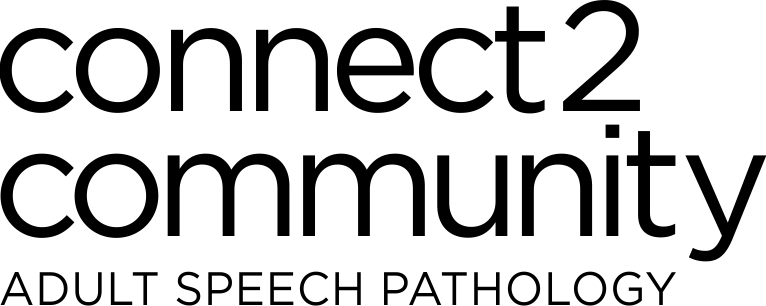

Progressive NEUROLOGICAL Communication Disorders
Primary progressive aphasia
What is Primary Progressive Aphasias?
Primary progressive aphasia is an acquired neurological condition that impairs a person’s ability to use language to communicate. This includes the loss of ability to understand (listen and read) or express (speak and write) language. Early presentation resembles aphasia, but primary progressive aphasias are in fact early onset forms of dementia.
Progression of Primary Progressive Aphasia?
Primary progressive aphasia is a progressive condition and therefore language ability will gradually decline over time. In the early stages of the disease, the most prominent clinical feature is difficulty with language. As primary progressive aphasia progresses, cognitive impairments (attention, memory, thinking time, behavioural and temperament changes) can also emerge. In the late stages some people will become mute.
Causes of Primary Progressive Aphasia?
The underlying cause is not well understood; however research suggests a possible genetic cause. Language impairment is the result of the gradual neurodegeneration of dominant regions of the brain that support speech and language, usually in the left hemisphere.
There are three types of Primary Progressive Aphasia
1. Nonfluent (nfvPPA)
2. Semantic (svPPA)
3. Logopenic (lvPPA)
Each type of PPA has a different language profile and different underlying neuropathology.
Non-fluent variant (type) nfvPPA
Symptoms can include:
- Slow rate of speech
- Effortful speech and speech errors may be present (mispronunciations) due to apraxia of speech
- Word finding difficulties
- Reduced ability to form grammatical sentences (basic grammar and correct word order). Function words (the smaller words) in the sentence are missing. For example:
- Pronouns (I, she, he), conjunctions (and, because, so) and articles (a, the)
- Reduced use of verbs (He washed the car)
- Incorrect use of words e.g., ‘he’ for ‘she’
- Difficulty understanding long, complex sentences and instructions.
- Difficulty repeating words, phrases and longer sentences
- Difficulty with producing longer syllable words (e.g., astronaut) and sequences of syllables (puh, tuh, kuh)
Semantic variant (type) svPPA
Symptoms include:
- Sentence structure and speech sound production is well preserved and fluent (early in the course of the disease)
- A gradual loss of meaning or comprehension for objects
- Difficulty with naming common objects and defining their meaning
- Use of substitution of words (e.g., ‘table’ for ‘chair’)
- A reduction in the use of nouns (words for people, place or things) results in the sentence lacking in meaning.
- A verbal message can become progressively circumlocutory (talking around the word e.g., ‘it tells the time, I wear it on my wrist, it has hands’ = wristwatch), and empty, as less frequently used vocabulary such as ‘dachshund’ or ‘lady-bird’ is replaced by increasingly more generic words such as ‘animal’ or ‘thing’.
- May use increased conversational phrases repetitively (e.g., ‘Hi, how are you?’)
- In reading and writing words, a person may present with ‘surface dyslexia and dysgraphia’ (e.g., sounding and writing ‘island’ as ‘izland’)
Logopenic variant (type) lvPPA
Symptoms include:
- Word finding difficulty resulting in reduced speech rate with false starts (hesitations) and pauses.
- Incomplete and/or vague utterances (lacking specific content words)
- Impaired ability to repeat phrase and sentence length material
- Evidence of impaired phonological (ie., speech sound) selection, sequencing and assembly resulting in phonological errors in speech (i.e., replacing a sound in a word with another sound e.g., says ‘tup’ instead of ‘cup’; says ‘slee’ instead of ‘sleep’
- Reduced auditory span for repetition of digit (number) strings (counting backwards and forwards)
It is important to know the following
- Progressive aphasia is an emerging area in Speech Pathology practice. In saying that, speech pathologists play a vital role as part of the multidisciplinary team in clinical diagnosis of the primary progressive aphasia variant.
- A speech pathologist has the clinical skill-set to detect and describe the subtle language features that often distinguish the variants.
- Identification of the primary progressive aphasia variant is important as identification contributes to overall speech pathology clinical care (i.e., the progression of symptoms and their accompanying impact on communication varies for each variant, and therefore requires a person-centered management approach).
- Providing additional information about prognosis for the person with primary progressive aphasia and their family/care partners enables some advance preparation for the likely future course and referral to appropriate health professional supports.
How can speech pathology help?
A speech pathologist can:
- Provide clinical confirmation of a primary progressive aphasia diagnosis and variant type as a member of the multi-disciplinary team.
- Provide treatments that target language impairment with the overall aim to maximise effective communication and quality of life for the person with primary progressive aphasia at every stage of the disease progression. All treatments focus on real-life, meaningful situations and tasks to enhance success in communication.
- Provide compensatory approaches in the form of Augmentative and Alternative Communication (AAC) to increase environmental support and reduce communication barriers.
- Provide communication partner training and support for the individual with primary progressive aphasia and their close communication partner/s. Knowledge and use of facilitative strategies by communication partners can enhance successful communication.
- Identify barriers and facilitators within the person’s communication environment, with the goal being – how to best support communication for the person with primary progressive aphasia within their community.
- Provide primary progressive aphasia specific education for the client and family
Please contact connect2community speech pathology if you have any concerns or questions regarding primary progressive aphasia or a recent diagnosis of primary progressive aphasia.
PHONE 0411 864 386
EMAIL info@connect2community.au
